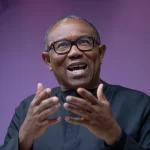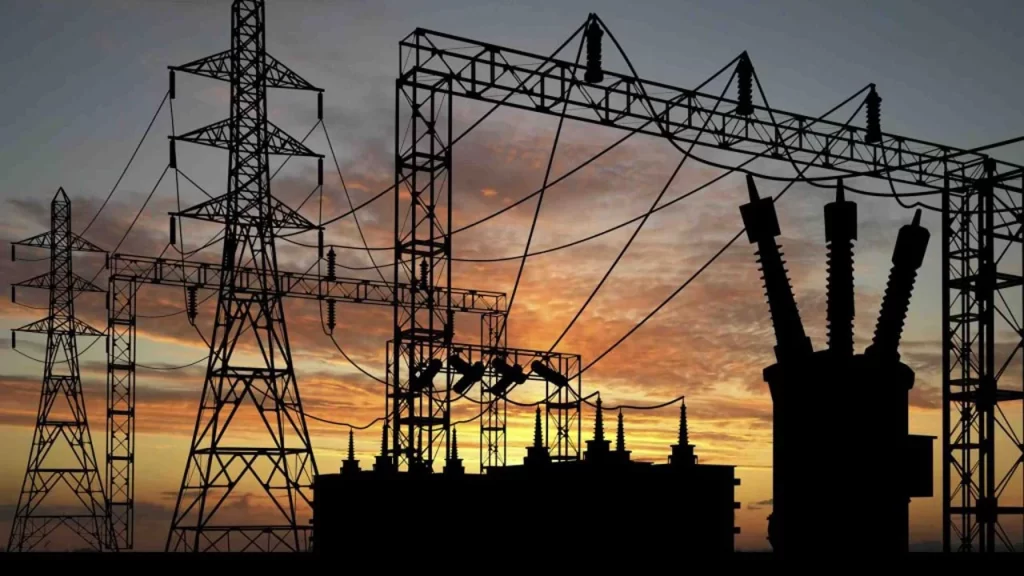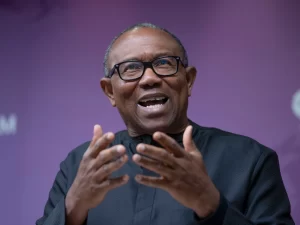Festus Osifo, the President of Petroleum and Natural Gas Senior Staff Association of Nigeria (PENGASSAN) has called on the federal government to employ qualified hands that would manage the power sector in the country.
Osifo, who was speaking at the association’s National Executive Council (NEC) meeting in Lagos on Thursday said the national grid collapse is a shame to the country and called on the president to do everything possible to ensure that electricity assets are well protected for the country to enjoy the best of it.
He said: “The national grid collapsed more than 12 times in 2024. It is a shame to us as a country. We cannot even generate sufficient megawatt to power our homes then the little we could generate because we’ve been around 3000 to 4000 megawatts since 1999 it’s evolving around that and billions of dollars has gone into this without real improvement and even at that we are consistently faced with grid collapse week in week out. This is not acceptable.”
He added: “In 2025 we have also witnessed the first big collapse and God knows how many more we are going to witness before the end of the year.”
According to Osifo, Nigeria is a country that is blessed with human resources, great intellectuals and should not be managed by people that are not qualified or politicians who have nothing to offer.
“Nigeria is a country that is blessed with human resources and great intellectuals. We cannot manage our agencies with people that are less qualified or with politicians who have nothing to offer, so the president must look at those that are capable and quality to manage it.
“What we have said is very clear. We are over 230 million Nigerians. We believe strongly that we have competent and knowledgeable Nigerians.
“You could see what happened in Aba, Abia State. The geometric. It was a private initiative supported by the state government and we see the revolution that happened.
“So we are quite happy that today, the government has decentralized power generally. It is very good because we have been calling for that for ages.
If you look at speeches of my predecessors, we have been calling for the decentralization of the power grid system. That today is a work in progress. But in terms of the team, we think strongly that we can do better than what we have today.
“As a country, have you ever seen a situation where you have an engineer as the minister of health? Have you ever seen a situation where you have a medical doctor as the Attorney General of the Federation? I could go on and on and on. So, power generation is a technical job. We could see when somebody like Barth Nnaji was the minister of power. We saw the difference that came within that period. So what we are saying is that you must put round pegs in round holes and square pegs in square holes,” he added.
Addressing the issue of tax reforms, Osifo said it’s a welcome idea in the administrative system, but noted that there is some key prohibition that would be inimical to the growth of the nation.
One of them he said is the issue of increasing the VAT. According to him, increasing the VAT is going to impoverish Nigerians more. Instead of that, he said the government should drag in more people to pay tax because a lot of Nigerians do not pay tax.
“When I talked about us getting, expanding revenue base, I tied it to harnessing our material and mineral resources. Not the expansion, or rather, not the increase in tax of VAT. Because today, if VAT is increased, it is actually going to be passed back to Nigerians. We are the ones that will pay for it.
“A lot of Nigerians are not paying tax today. So what we are advocating is that instead of you increasing the rate, what you should do is to drag in a lot of people into the net.
“People that are paying tax today in Nigeria are less than 10 to 15 per cent of those that should pay. So what that means is that if you expand that to about 80 per cent, you are going to generate much more revenue. But increasing the rate is going to impoverish Nigerians much more.”
He also looked at the issue of Nigeria Revenue Service, a proposed bill to replace the Federal Union Revenue Services. He stated that Nigeria as a country might be short-changed when we go in that direction.
“In the proposed bill, they want to create a Nigerian Revenue Services to replace the Federal Union Revenue Services. And that Nigerian Revenue Services will now be saddled with collecting revenue all across. And how it affects us, for example, is the NUPRC.
“Today, NUPRC, they are the ones that are responsible for calculating royalties. They are the ones that are responsible for looking at the profit, oil, and others. And this, at the end, is paid not to NUPRC account. It is paid to CBN account. It is paid to government account. But NUPRC administers it.
“So our challenge today is that if you move that function to Nigerian Revenue Services, are they going to have the requisite experience? Are they going to have the requisite expertise to be able to administer this? Will they now be going to the warehouse to do fiscalization? Will they now be going from one field location to another to be able to look at what the companies are declaring vis-a-vis production? How will they now be concerned with other functions that are domiciled in NUPRC?
“So as we could see, that Nigeria as a country might be short-changed when we go in that direction,” he said.










More Stories
Obi debunks false report of begging Tinubu over Fidelity Bank alleged debt
South African authorities approve Canal+ acquisition of Multichoice
Senator Nwebonyi wants poor communities relocated out of Abuja Airport, says not befitting to Nigeria’s image